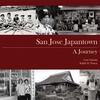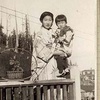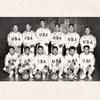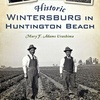
While perusing this beautiful and bountiful 470-page tome affording its lucky readers a temporal, spatial, and sociocultural journey relative to San Jose’s Japantown, I reflected upon my personal journey regarding this historic place. It was secured by my reading of Stephen Misawa, ed., Beginnings: Japanese Americans in San Jose (1981) …

The World War II exclusion and detention experience of Japanese Americans is now fairly widely familiar, at least in general terms, to many within the United States. Their knowledge of this particular subject has been broadened and deepened progressively since the 1970s through a veritable media avalanche of historical representations …

These books by Ellen Wu and Kristin Hass both assess a contested facet of Japanese American studies from a comparative perspective; and both are judiciously conceptualized, skillfully organized, soundly argued, lucidly written, and bountifully documented.

The most fitting way I can think of to begin this review of Mary Adams Urashima’s Historic Wintersburg in Huntington Beach, is to appropriate and slightly modify what the great American poet Walt Whitman said in relation to his most notable poetic volume, Leaves of Grass (1855): “Whoever touches this …